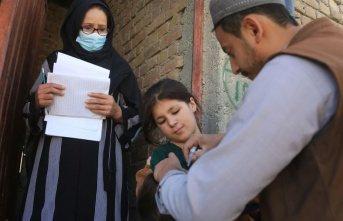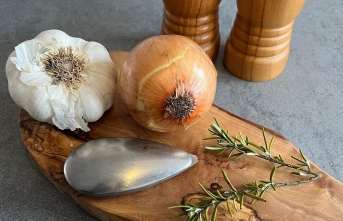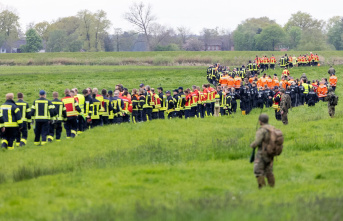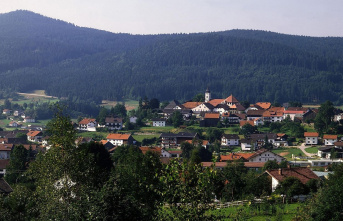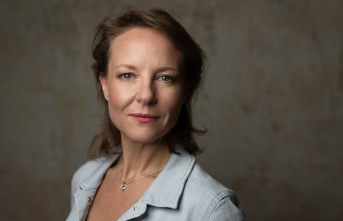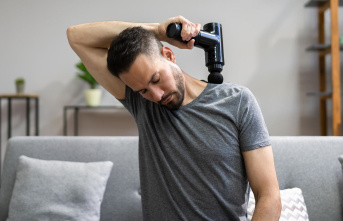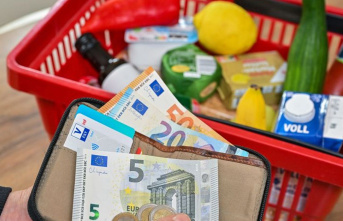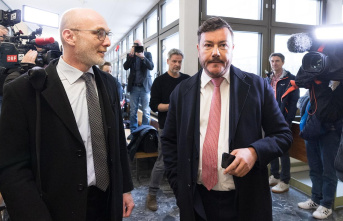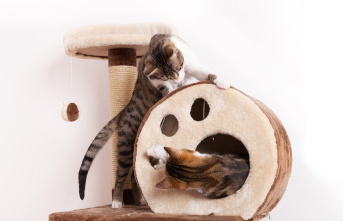Max Strohe is something like an alchemist. Everything he touches turns to gold. His Berlin restaurant Tulus Lutruk has a Michelin star, and he himself is one of the 100 best chefs in Germany. He recently won the "Chef of the Year" award at the Rolling Pin Awards. But the sun didn't always shine on him. In his youth, Strohe thrived on self-destruction, chaos was his constant companion. The star chef has now written a book about this time. The star spoke to him about the young Max Strohe.
Mr. Strohe, I must say that you are a rascal. You, a chef, call your autobiographical book "Open Heart Cooking" and then tell of a drugged frenzy through life and sex, lots of sex. Cooking itself probably played a subordinate role in your early years...
Yes totally. Just as I wrote it down, my priorities used to be. Today, cooking is part of the center of my life. It used to be just not cooking. I didn't like to cook that much before. I think what I liked about being a chef was that you could work late into the night. It tended to be possible to lead an intoxicated life and work at the same time. Of course that changed at some point – thank God. You couldn't have done that forever.
You write: "[I] would like to engage in decadent swindling and overexploitation of my own resources without anyone noticing". What drove you back then?
Oh. mmm Yes. I don't really know either. Of course, while I was writing the book, I thought a lot about what actually fucked me up at the time and why I lived so fast. But nothing bad happened to me in my childhood. I grew up sheltered in a small village. There was no trauma to blame. I really think it was mimicking famous rock stars. I just wanted to be Jim Morrison. Or Kurt Cobain. Or both. Those were my heroes. I listened to their music, read books, watched movies about them and thought the only way to exist was to shoot yourself down and walk through life. Just like Jim Morrison did.
They talk relentlessly. Not only you, but also the people you met during those years will lose fat. Above all, a chef, a so-called Gerd Speer, who is described as a tyrant - aren't you worried about catching a slap in the face afterwards?
I have written very openly and honestly about my time in the past. Of course, we had to alienate most of the people who appear in the book, and the names of most of them have of course also been changed. But the stories I tell are based on real experiences.
You were someone who shunned failure and perfected at the same time. Starting with dropping out of school, through the lost apprenticeship to provoked layoffs and short-term homelessness. Do you have any regrets?
Oh yeah, I don't think so. I don't regret anything because I talk myself into believing that I won't slide into a hard midlife crisis in the next five years. I've taken everything I can with me. So no. But of course things could have been done differently.
Namely?
Quite often I see 20-year-old boys working here in my kitchen, who know exactly what they want and are already very, very good at what. I didn't start getting good at something until I was 30. Of course, I could have paid ten more years into my pension, maybe saved a bit and had a better job when I was younger. I missed all that, I have to make up for it. But I don't regret that. It's kind of cool to have stories like that ready to hand. They're bold stories.
Would you also give this answer to your daughter?
I've asked myself too. My daughter is twelve. There is no lock on this book like on the Macbook that prevents you from seeing certain things even though you are under 18. You can buy a book like this anytime, anywhere. And I'm not keen on her reading it now. I wouldn't read it to her either.
They really weren't a child of innocence. In the book, too, you get naked in the truest sense of the word, and some of the sex scenes should make readers' ears glow. Why these episodes?
Well, at first I didn't even know if I could write at all. And sex scenes were actually the easiest for me. If I didn't get in somewhere else, I just wrote about sex. That's how I found my rhythm. The passages are short, but pack a punch. I also love reading sex scenes myself, and I'm always disappointed when they're not explicit enough. I used to read a lot of Henry Miller and sex is very explicit there. But I'm also a relentlessly cheesy romantic. Sometimes I just watch crime series because I think maybe two people fall in love and end up being a couple. I wrote the book the way I would like to read it - and because I lack that in literature.
Not only from woman to woman but also from city to city you dinged, even went abroad. You never really stayed long anywhere. And then suddenly the desire for a home. In Berlin of all places, a city that, as you write, you found so terrible that you could imagine staying. What can Berlin do that your homeland, the Ahr Valley, couldn't?
No idea. It was definitely possible to sink into anonymity here. It was a fresh start. Not everyone knew me and knew where I was lying around somewhere drunk. I knew one or two people here who I first stayed with. But other than that… it certainly wasn't the nightlife. I've never been to a club in Berlin, not even Berghain. I didn't do any of that.
The Berlin star chef Tim Raue plays no small role in the story of your career. Can you call him a role model?
Naturally. Hanging out with Tim Raue now is sort of like hanging out with Kurt Cobain — for my former self, that is. Tim has always been a role model. I found his street boy past, the violence, his self-made story very, very impressive. I also liked it because it was always loud and always polarized. People either love him or hate him, even here in town. Despite that, he always did his thing. I thought that was cool. And it tastes good too, doesn't it?! It puts itself on the plate and it's intense and loud, sometimes garish and incredibly good.
Who cooks better these days: Tim Raue or Max Strohe
Helloooo??? I can't answer that. I would say that we trust the established institutions. Tim has two stars, we only have one. But I think I cook more than Tim Raue.
You are now part of the German cooking elite, wear a Michelin star and the Federal Cross of Merit on top of it, you can be seen regularly on TV and now you are also an author. What would your 15-year-old Cobain-Morrison self think of the straws today?
Ah, he would hate that. He would say: What a wanker. Sometimes people from the old homeland come into the shop here. Few have enough money to afford food here. Then of course I invite them. It's uncomfortable for them and me too. Occasionally there is also a reproach: Have you now become what you used to think was shit? Does only the pink polo shirt count? And so on. Interview with Max Strohe
Oh.
But I also believe that the 15-year-old would pat me on the back if he knew which way I went: "You didn't do that badly and you didn't become such a big asshole." Aren't all assholes who are successful. That used to be a bit of my riot, based on the motto: I'm very leftist, very punk and everyone who has money is assholes.
Her father was very different. In my mind's eye I see him as an old-school playboy, Gunter Sachs or Rolf Eden. He introduced you to the "good life", a different form of enjoyment. Would you have become a star chef without his influence?
No! Everyone tends to want to make their parents proud. I didn't meet my father until I was 15, which means I had a bit of catching up to do. If he hadn't admired me for disassembling sole or whipping hollandaise, I wouldn't have continued cooking.
In the past, cooking didn't have the rock star image it has today, it was more "if you don't work, you become a host". Back then, I was always a little ashamed when someone asked me what I did for a living. That's why at some point I tried to do the Abitur, which of course didn't work out because I really didn't feel like it at all. My father said to me at the time that the Abitur was nonsense and that cooking was a great job. If he hadn't told me that, I wouldn't have continued cooking.


